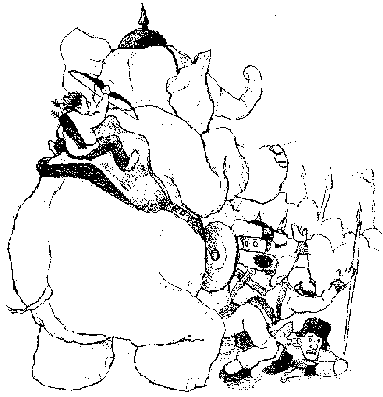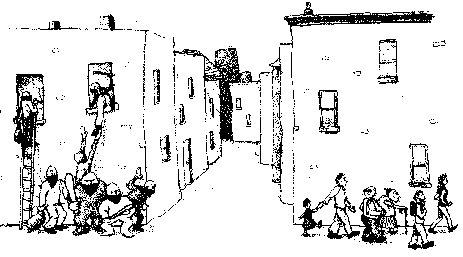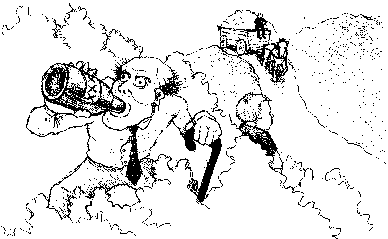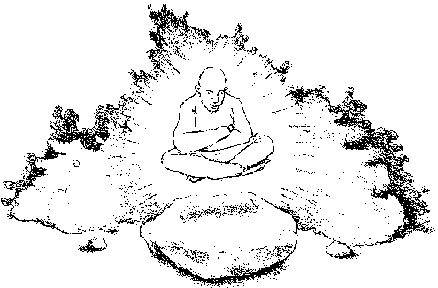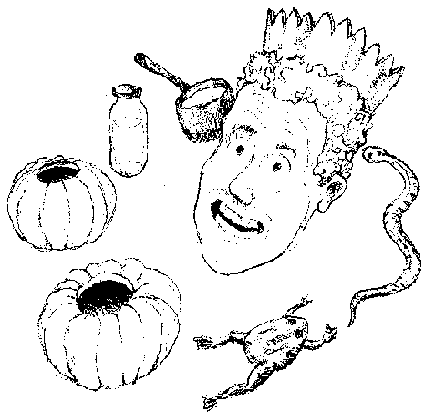82, 41, 104, 369, 439, The Curse of Mittavinda [Chapter 1. Jealousy]
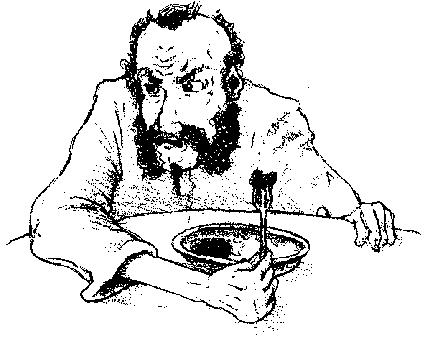
Once upon a time, there was a monk who lived in a tiny monastery in a little village. He was very fortunate that the village rich man supported him in the monastery. He never had to worry about the cares of the world. His alms food was always provided automatically by the rich man.
So the monk was calm and peaceful in his mind. There was no fear of losing his comfort and his daily food. There was no desire for greater comforts and pleasures of the world. Instead, he was free to practice the correct conduct of a monk, always trying to eliminate his faults and do only wholesome deeds. But he didn’t know just how lucky he was!
One day an elder monk arrived in the little village. He had followed the path of Truth until he had become perfect and faultless.
When the village rich man saw this unknown monk, he was very pleased by his gentle manner and his calm attitude. So he invited him into his home. He gave him food to eat, and he thought himself very fortunate to hear a short teaching from him. He then invited him to take shelter at the village monastery. He said, “I will visit you there this evening, to make sure all is well."
When the perfect monk arrived at the monastery, he met the village monk. They greeted each other pleasantly. Then the village monk asked, “Have you had your lunch today?" The other replied, “Yes, I was given lunch by the supporter of this monastery. He also invited me to take shelter here."
The village monk took him to a room and left him there. The perfect monk passed his time in meditation.
Later that evening, the village rich man came. He brought fruit drinks, flowers and lamp oil, in honor of the visiting holy man. He asked the village monk, “Where is our guest?" He told him what room he had given him.
The man went to the room, bowed respectfully, and greeted the perfect monk. Again he appreciated hearing the way of Truth as taught by the rare faultless one.
Afterwards, as evening approached, he lit the lamps and offered the flowers at the monastery’s lovely temple shrine. He invited both monks to lunch at his home the next day. Then he left and returned home.
In the evening, a terrible thing happened. The village monk, who had been so contented, allowed the poison of jealousy to creep into his mind. He thought, “The village rich man has made it easy for me here. He provides shelter each night and fills my belly once a day.
“But I’m afraid this will change because he respects this new monk so highly. If he remains in this monastery, my supporter may stop caring for me. Therefore, I must make sure the new monk does not stay."
Thinking in this way, he lost his former mental calm. His mind became disturbed due to his jealousy – the fear of losing his comfort and his daily food. This led to the added mental pain of resentment against the perfect monk. He began plotting and scheming to get rid of him.
Late that night, as was the custom, the monks met together to end the day. The perfect monk spoke in his usual friendly way, but the village monk would not speak to him at all.
So the wise monk understood that he was jealous and resentful. He thought, ‘This monk does not understand my freedom from attachment to families, people and comforts. I am free of any desire to remain here. I am also free of any desire to leave here. It makes no difference. It is sad this other one cannot understand non-attachment. I pity him for the price he must pay for his ignorance."
He returned to his room, closed the door and meditated in a high mental state throughout the night.
The next day, when it was time to go collect alms food from the supporter of the monastery, the village monk rang the temple gong. But he rang it by tapping it lightly with his finger nail. Even the birds in the temple courtyard could not hear the tiny sound.
Then he went to the visiting monk’s room and knocked on the door. But again he only tapped lightly with his finger nail. Even the little mice inside the walls could not hear the silent tapping.
Having done his courteous duty in such a tricky way, he went to the rich man’s home. The man bowed respectfully to the monk, took his alms bowl and asked, “Where is the new monk, our visitor?"
The village monk replied, “I have not seen him. I rang the gong, I knocked at his door, but he did not appear. Perhaps he was not used to such rich food as you gave him yesterday. Perhaps he is still asleep, busily digesting it, dreaming of his next feast! Perhaps this is the kind of monk who pleases you so much!"
Meanwhile, back at the monastery, the perfect monk awoke. He cleaned himself and put on his robe. Then he calmly departed to collect alms food wherever he happened to find it.
The rich man fed the village monk the richest of food. It was delicious and sweet, made from rice, milk, butter, sugar and honey. When the monk had eaten his fill, the man took his bowl, scrubbed it clean, and sweetened it with perfumed water. He filled it up again with the same wonderful food. He gave it back to the monk, saying, “Honorable monk, our holy visitor must be worn out from travelling. Please take my humble alms food to him." Saying nothing, he accepted the generous gift for the other.
By now the village monk’s mind was trapped by its own jealous scheming. He thought, “If that other monk eats this fantastic meal, even if I grabbed him by the throat and kicked him out, he still would never leave! I must secretly get rid of this alms food. But if I give it to a stranger, it will become known and talked about. If I throw it away in a pond, the butter will float on the surface and be discovered. If I throw it away on the ground, crows will come from miles around to feast on it, and that too would be noticed. So how can I get rid of it?"
Then he saw a field that had just been burned by farmers to enrich the soil. It was covered with hot glowing coals. So he threw the rich man’s generous gift on the coals. The alms food burned up without a trace. And with it went his peace of mind!
For, when he got back to the monastery, he found the visitor gone. He thought, “This must have been a perfectly wise monk. He must have known I was jealous afraid of losing my favored position. He must have known I resented him and tried to trick him into leaving. I wasted alms food meant for him. And all for the sake of keeping my own belly full! I’m afraid something terrible will happen to me! What have I done?" So, afraid of losing his easy daily food, he had thrown away his peace of mind.
For the rest of his life the rich man continued to support him. But his mind was filled with torment and suffering. He felt doomed like a walking starving zombie, or a living hungry ghost.
When he died, his torment continued. For he was reborn in a hell world, where he suffered for hundreds of thousands of years.
Finally, there too he died, as all beings must. But the results of his past actions were only partly completed. So he was reborn as a demon, 500 times! In those 500 lives, there was only one day when he got enough to eat, and that was a meal of afterbirth dropped by a deer in the forest!
Then he was reborn as a starving stray dog another 500 times! For the sake of a full monk’s belly in a past life, all these 500 lives were also filled with hunger, and quarrelling over food. Only a single time did he get enough to eat, and that was a meal of vomit he found in a gutter!
Finally most of the results of his actions were finished. Only then was he so very fortunate enough to be reborn as a human being. He was born into the poorest of the poor beggar families of the city of Kasi, in northern India. He was given the name, Mittavinda.
From the moment of his birth, this poor family became even more poor and miserable. After a few years, the pain of hunger became so great, that his parents beat him and chased Mittavinda away for good. They shouted, “Be gone forever! You are nothing but a curse!"
Poor Mittavinda! So very long ago he had not known how lucky he was. He was contented as a humble village monk. But he allowed the poison of jealousy to enter his mind – the fear of losing his easy daily food. This led to the self-torture of resentment against a perfect monk, and to trickery in denying him one wholesome gift of alms food. And it took a thousand and one lives for the loss of his comfort and daily food to be completed. What he had feared, his own actions had brought to pass!
82, 41, 104, 369, 439, The Curse of Mittavinda [Chapter 1. Jealousy]
#Buddhisttalesforyoungandold #Buddhiststories #storiesforkids #moralstories #Buddha #Jatakastories #PansiyaPanasJataka

